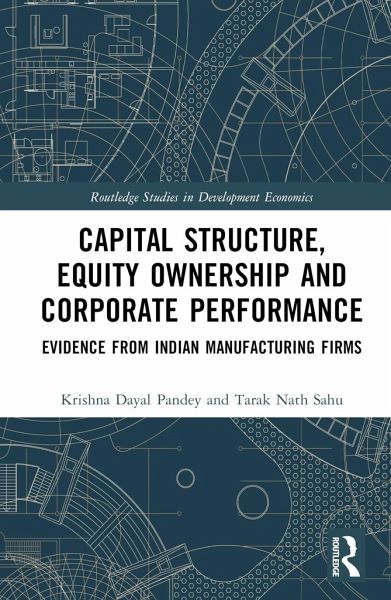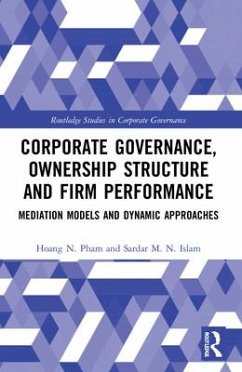
Capital Structure, Equity Ownership and Corporate Performance
Evidence from Indian Manufacturing Firms
Versandkostenfrei!
Versandfertig in 6-10 Tagen
144,99 €
inkl. MwSt.
Weitere Ausgaben:

PAYBACK Punkte
72 °P sammeln!
This book provides empirical insights into the relationship between capital and equity-ownership structure of Indian manufacturing companies and their financial performance. It discusses and analyses the basic theories and concepts associated with capital structure, debt financing, levered and unlevered firms, the various forms of ownership, agency problem and its kind and the exploitation of minority owners by the large and largest owners.The study employs a set of the most reliable and suitable econometric estimation techniques to draw meaningful inferences on the Indian manufacturing sector...
This book provides empirical insights into the relationship between capital and equity-ownership structure of Indian manufacturing companies and their financial performance. It discusses and analyses the basic theories and concepts associated with capital structure, debt financing, levered and unlevered firms, the various forms of ownership, agency problem and its kind and the exploitation of minority owners by the large and largest owners.
The study employs a set of the most reliable and suitable econometric estimation techniques to draw meaningful inferences on the Indian manufacturing sector. The novelty of this book lies in three particular aspects: the depth and dimension with which the topic is addressed; the robust empirical evidence that it has produced and the simple and intelligible approach with which it is authored. It communicates the crucial relevance of corporate capital structure and equity-ownership to the moderation of agency relationship and shaping the internal governance mechanism, which ultimately results in increased or decreased operational efficiency and financial performance. It will enable readers to understand whether an increased amount of debt capital would bring about positive results for firms or create an extra burden on the management of their finances, preventing them from taking productive investment decisions due to the threat of liquidation.
The book will find an audience among advanced students, scholars and researchers who are interested in understanding the corporate finance practices and governance mechanism of Indian organizations.
The study employs a set of the most reliable and suitable econometric estimation techniques to draw meaningful inferences on the Indian manufacturing sector. The novelty of this book lies in three particular aspects: the depth and dimension with which the topic is addressed; the robust empirical evidence that it has produced and the simple and intelligible approach with which it is authored. It communicates the crucial relevance of corporate capital structure and equity-ownership to the moderation of agency relationship and shaping the internal governance mechanism, which ultimately results in increased or decreased operational efficiency and financial performance. It will enable readers to understand whether an increased amount of debt capital would bring about positive results for firms or create an extra burden on the management of their finances, preventing them from taking productive investment decisions due to the threat of liquidation.
The book will find an audience among advanced students, scholars and researchers who are interested in understanding the corporate finance practices and governance mechanism of Indian organizations.













